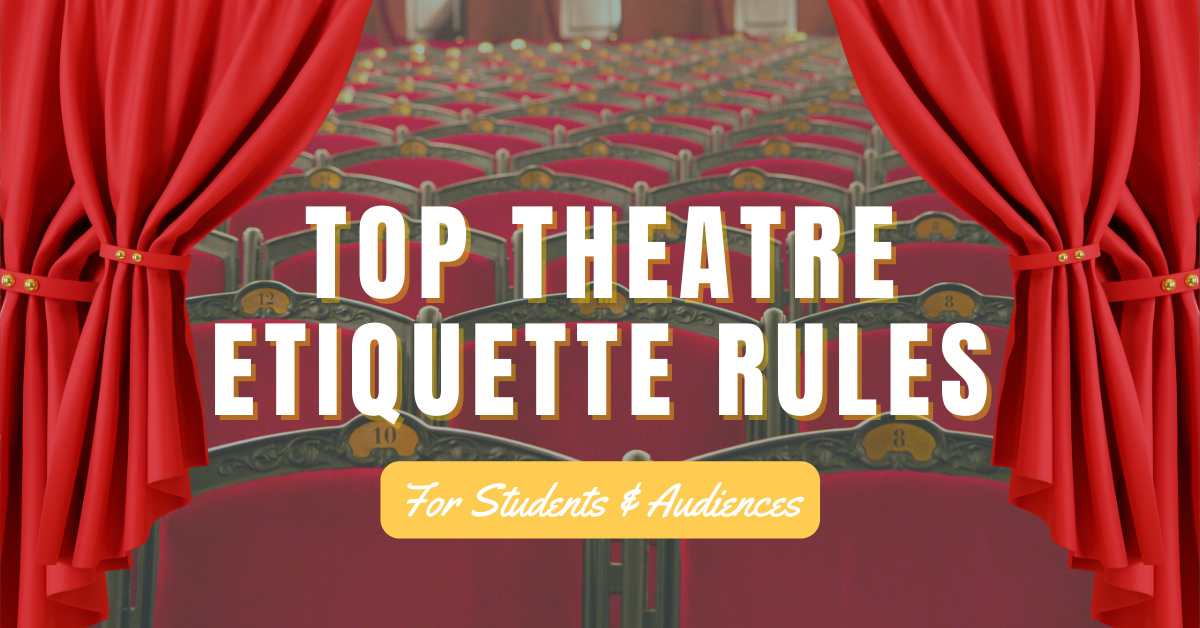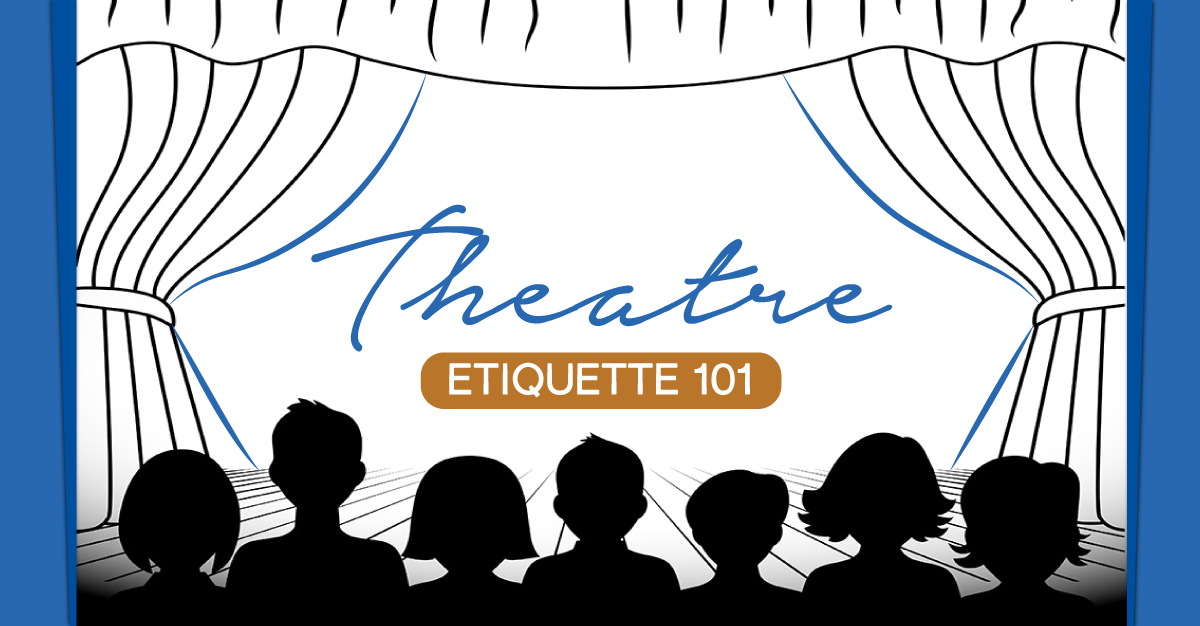Top Theatre Etiquette Rules
A successful theatre experience requires respect for and from everyone involved in the production — from the performers to the backstage crew to the audience. No matter the role, everyone has the same goal: to be transported to a shared entertainment experience. But how do you ensure everyone approaches this objective with the same set of guidelines and expectations?
We went straight to the source to get the inside scoop from those who’ve been there: drama teachers.
We asked: What are your top theatre etiquette rules for your students / audience?
Applause, applause, applause
If you find something humorous, laugh or clap as appropriate. Performers feed off the audience’s energy. (Molly W.)
Always give enthusiastic applause. I tell students we are applauding the contribution of the performers, not necessarily the end product. (Tanya B.)
A bow is a performer’s way of thanking the audience, and applause is the audience’s way of thanking the performers and crew, so say “Thank you”! (Jenny O.)
Applaud the underdog. When things go wrong. When something didn’t work. The difference between theatre and film is it’s human and real and you’re part of it. (Chris R.)
Allow yourself and others to have authentic emotional responses: laugh, applaud, cry — let the performance touch your heart. (Kathryn D.)
Silence, please
Do not talk during the performance. It’s rude to your neighbours and distracting for the performers. (Molly W.)
Do not smack, chew, or pop gum during a show. If you have any type of candy in wrapping that will make noise, open it before the show begins. (Molly W.)
Energy into the performance, no side conversations. (Kathryn D.)
No technology
Do not film any portions of the show or use flash photography during a performance. (Molly W.)
Turn off and put your phones away. You can go an hour or two without having to check notifications. (Shannon J.)
Respect the show
Don’t waste people’s time. Learn your lines, don’t show up to a performance late. (Jasmine I.)
If it’s not yours, don’t touch it. (Alise A.)
Early is on time. On time is late. (Suzette D.)
Don’t let your behavior get in the way of someone else enjoying the show. (Laura D.)
Every moment will only happen once. So listen. Capture it. (Chris R.)
After you work really hard, have fun — it’s called a “play” for a reason. (H.D.)
Don’t get up until intermission or the end of the show. (Caryn B.)
Everyone counts
Say thank you to every single person who contributes (tech, volunteers, parents). (Jasmine I.)
Be kind to those on stage — mistakes happen! (Alise A.)
Respect your backstage crew/techs. Nothing happens without them! (Sue K.)
Be generous. Theatre lives by the audience. Young performers learn in full view of them. Those who support it make performance possible. The audience is part of the company. (Chris R.)
Want more information on theatre etiquette?
We’ve got you covered!



